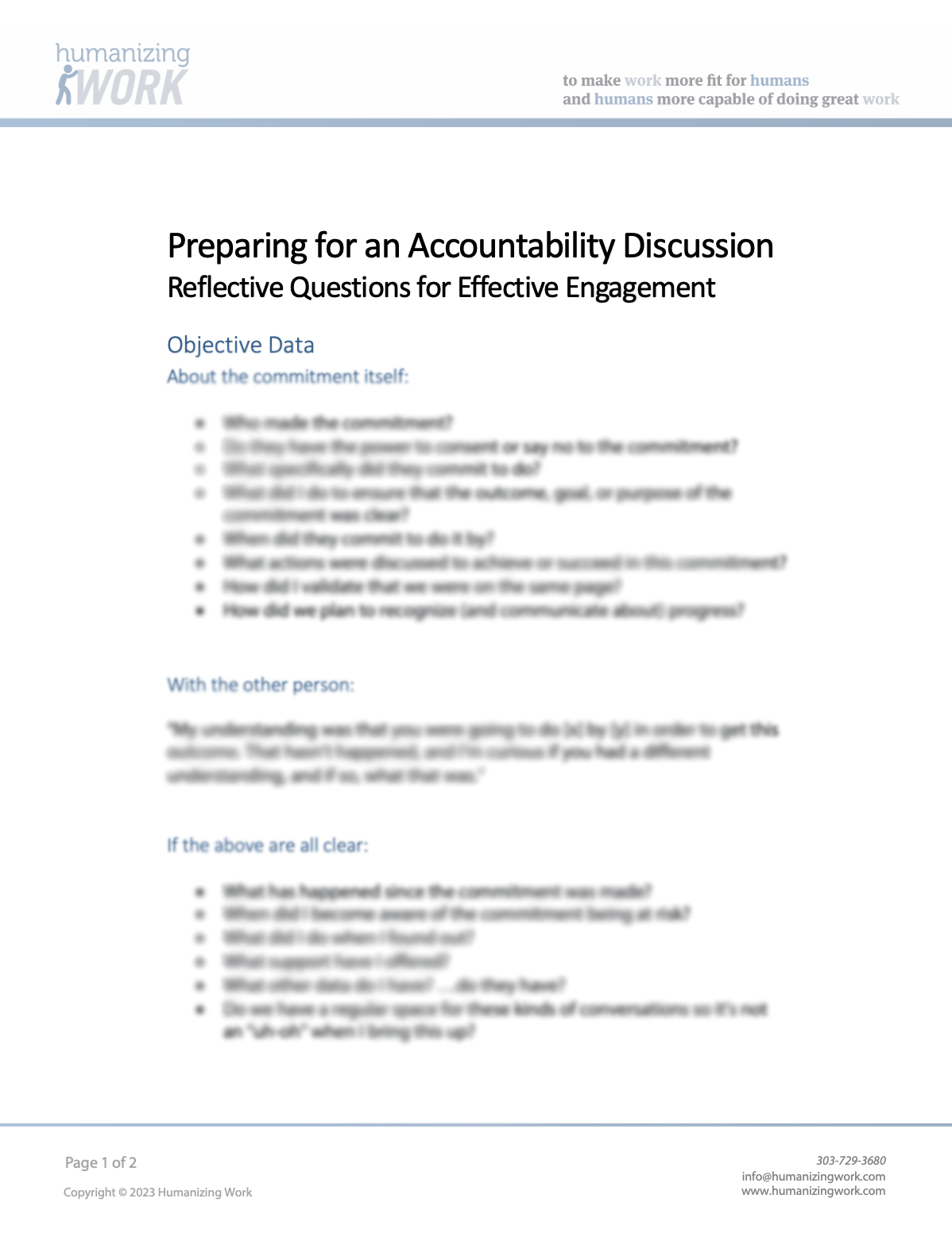 You thought expectations were clear, but it seems they’ve dropped the ball. Now what? You know you should say something. After all, Avoidance of Accountability is one of “The Five Dysfunctions of a Team” described in Patrick Lencioni’s bestselling book. As a leader, you understand the importance of accountability for achieving good outcomes. But it’s easy to feel like a jerk when you actually try to hold someone accountable for a commitment.
You thought expectations were clear, but it seems they’ve dropped the ball. Now what? You know you should say something. After all, Avoidance of Accountability is one of “The Five Dysfunctions of a Team” described in Patrick Lencioni’s bestselling book. As a leader, you understand the importance of accountability for achieving good outcomes. But it’s easy to feel like a jerk when you actually try to hold someone accountable for a commitment.
Fear not! With a little preparation, you can have an effective discussion about accountability. Follow these 5 steps to prepare well for an accountability conversation:
- Envision your role in the conversation. Imagine how you want to show up. Identify potential reactive tendencies and creative competencies that can lead to the best outcome. (Learn more about the Leadership Circle model here).
- Collect objective facts. Gather information about the original commitment and subsequent events. Identify who made the commitment, what they committed to, and by when. Reflect on how you validated a shared understanding. Assess your own involvement in the process.
- Reflect on your emotional state. Understand how the current situation is impacting you. Identify the source of any pressure or frustration you’re feeling. By acknowledging your emotions and their consequences, you can maintain composure during the conversation.
- Interpret potential causes. Analyze the situation from a systemic perspective. Consider how the larger system may have contributed to the problem. If the person typically meets commitments, develop hypotheses about what might have gone wrong this time. For recurring issues, explore factors such as the process around requests and commitments, skill alignment, role fit, and underlying incentives.
- Decide on a conversation structure. Based on your preparation, determine if an accountability conversation is necessary. Assess whether the commitment was clear or if adjustments to the system are more appropriate. If a conversation is warranted, plan how to frame it in service of the individual’s growth. Decide how you’ll stay in a Creative stance, and how you’ll steer the discussion back on track if needed.
 Seasoned followers of Humanizing Work will recognize steps 2-5 as following the “Art of Focused Conversation” ORID model. To support your preparation, we’ve created a free downloadable set of questions for a “Focused Conversation with Yourself” based on the 5 steps above. Click here or on the image to download.
Seasoned followers of Humanizing Work will recognize steps 2-5 as following the “Art of Focused Conversation” ORID model. To support your preparation, we’ve created a free downloadable set of questions for a “Focused Conversation with Yourself” based on the 5 steps above. Click here or on the image to download.
Want to make clearer commitments? Check out this episode of the Humanizing Work Show on The Healthy Way To Do Commitments & Accountability.
While it may be uncomfortable to hold accountability discussions, accountability plays a crucial role in personal growth, organizational effectiveness, and overall progress. Encouraging open and constructive dialogue about accountability can help address issues, promote responsibility, and foster positive change. By preparing well, you can achieve all these outcomes without being a jerk! In fact, healthy accountability sets the stage for stronger relationships and lifelong improvement.
Don’t miss out on this valuable resource! Download our set of questions now, and unlock the power of constructive accountability conversations.
Last updated